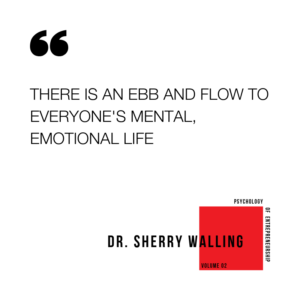Our brain and body’s capacity to make important decisions under stress and maintain work velocity is incredible. When you’re in a working environment that requires a level of continuous mental, emotional and physical strain, rather than getting consistent work-related results, you could be entering into burnout territory.
Many professionals are expected to be “on,” and working at a high level. Recently, this mentality has become somewhat of a social issue and the findings within a Gallup poll dated July 2018 showed that nearly a quarter of employees reported feeling burned out.
This shocking statistic has only reaffirmed that in a world where work is such a prominent part of our lives, understanding the burnout phenomenon and how we can manage it is important.
What is Burnout?
In 1974, the term ‘burnout’ was officially coined in Herbert Freudenberger’s book ‘Burnout: The High Cost of High Achievement.’ A few decades later, the World Health Organisation recognised it as a ‘genuine occupational syndrome linked to long-term unresolved work-related stress.’
Burnout is a psychological response and can take months or even years to manifest. This very real syndrome comes to a head when a person becomes constantly exhausted or feels their work has no importance, while also potentially experiencing pessimism for themselves and others.
Today, signs of burnout are professionally categorised in three ways – physical and emotional exhaustion, cynicism and detachment and finally ineffectiveness and lack of accomplishment.
Each of the three areas mentioned above contain multiple signs and symptoms, and in many cases they can overlap. One thing to keep in mind is that burnout is an intensely personal and complex issue, and doesn’t necessarily have a one-size-fits-all solution.
By catching one or two symptoms early enough, you may be able to put out the flames before they get out of control.
Physical and Emotional Exhaustion
Okay, so we all get tired from time to time, but this is fatigue at a completely different level. One of the noticeable signs is that you’re perpetually feeling groggy. Maybe you have a cold that you can’t quite shift but everyone else seemed to have gotten over it a week ago.
Other symptoms of physical and mental exhaustion include forgetfulness or impaired concentration, loss of appetite, anxiety or sense of dread, depression and even anger.
Cynicism and Detachment
While it’s only natural to go through phases of not enjoying your work, the feeling should pass. Burnout loves pessimism, so you may find yourself not trusting coworkers, friends or family and engage in antisocial behaviours while becoming disconnected from everything around you.
The emotional ties that used to draw you to work begin to dissipate, and you begin taking on the perception of “I just don’t care.” This sentiment not only applies to your work but may also creep into your social life too.
Check whether you are losing patience often and are quick to anger…
as well as actively avoiding social events and skipping work. If so, you may want to seek professional advice.
Lack of Accomplishment
The sad thing is, once burnout has a hold of you it can drastically affect your work outcomes and how you value your workplace as a whole. Helplessness, apathy and hopelessness may start to make an appearance and you may feel that the work you are generating is ineffective.
One thing to keep in mind, should these thoughts occur, reflecting upon the reality can help guide you through. Remember these thoughts are usually juxtaposed to the actual results you are producing.
How Can We Deal With Burnout?
Unsurprisingly, the number one cause of burnout is too much work, so you must be able to say ‘no’.
Another everyday tip is to have a task list that is achievable, manageable and reasonable for a normal human being to take on. Stay clear in what your priorities are, stay selective with your time, and satisfy that inner perfectionist in your brain by having a list of goals that you can check off periodically.
If you’re feeling extremely detached and unconnected from other people, flip it on its head and prioritise relationships. These can be personal or professional, but solidifying and maintaining those connections is vital. Try to integrate it within your day-to-day, not just within your off time.
The last way to combat burnout is to establish meaning. We’re stupendously capable of doing complex and difficult tasks when they’re important to us, but when we’re separated from that importance and just hitting the chore-like markers of your workday, we’re only adding to the recipe for burnout. Try to rekindle that joy you had for your work.

The Psychology of Entrepreneurship
For more insight into ‘Burnout’ check out volume 02 of the Psychology of Entrepreneurship podcast hosted by Ronsley Vaz and with special guest Dr Shelly Walling.
Author: Ronsley Vaz
Ronsley is the founder & chief day dreamer at AMPLIFY. He is an author, speaker & serial entrepreneur.
He has a Masters’ degree in Software Engineering and an MBA in Psychology and Leadership. He is known as the creator of We Are Podcast – the first Podcasting Conference in the Southern Hemisphere, and the host of The Bond Appetit Podcast and Should I Start a Podcast. He has an audience of over 3 million in 133 countries.

